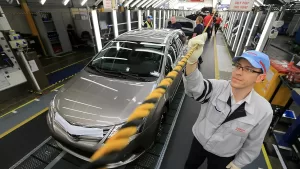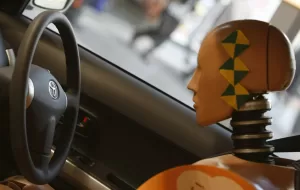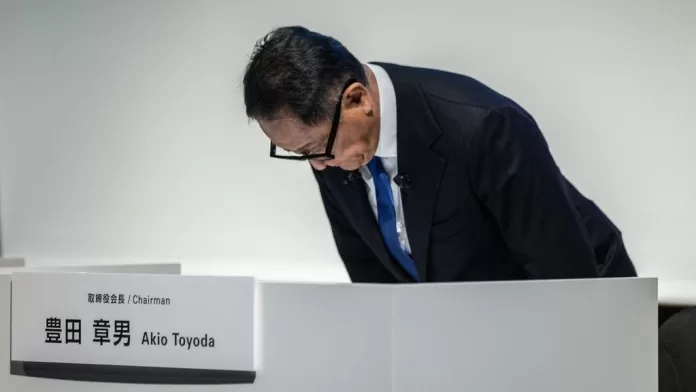Akio Toyoda, Chairman of Toyota Motor Corporation apologizes to the public for the mistake of car production. It’s not a joke there were six car production errors that made Toyota immediately stop their factory activity.
The apology was made by Akio Toyoda along with Shinji Miyamoto, Customer First Promotion Group Chief Officer of Toyota Motor Corporation in an official statement on Monday (June 3, 2024). Akio Toyoda said on January 26, 2024 that they had received instructions from the Japanese Ministry of Transport to conduct an investigation into some Toyota-made cars.
“There are seven models that have been produced since 2014. Thus, the model was produced using methods that did not meet the standards established by the local authorities,” explains Akio Toyoda.
“As a responsible man in the Toyota Group, I would like to apologize to the public and to all those concerned about the automotive industry,” he said.
Meanwhile, Shinji Miyamoto described in detail six production errors involving seven Toyota cars. First, the crash test errors carried out on Toyota Isis and Toyota Crown cars in 2014 and 2016.

At the time, Toyota employees were deliberately developing special safety belts in both cars to improve safety. “At the time of testing, special methods were used to produce a more severe impact when a collision occurred than existing methods. The results are then released for certification,” explains Shinji Miyamoto.
Second, the error occurred during the test of the 2015 Toyota Corolla. Toyota engineers took the initiative to innovate by performing crash tests with different angles from existing regulations.
“The choice of a larger angle was made because it would have a bigger impact,” explains Shinji Miyamoto.
Unfortunately, it goes against the established regulations. Third, a fatal mistake occurred when Toyota carried out pedestrian crash tests on Toyota Corolla Axio, Toyota Fielder, Toyota Sienta, and Toyota Crown in 2015.
At that time, Toyota testers engineered pedestrian crash tests on the left side of the car.
Unfortunately, the testers from the Toyota hit the same impact test they got. “It was confirmed that there was no difference between the left and right sides,” Shinji Miyamoto complained.
Fourthly, errors occurred during rear collision tests on two cars, the 2015 Toyota Sienta and the 2014 Toyota Crown, which were tested using a heavier than usual moving device to get a stronger impact.
According to Shinji Miyamoto, the device weighs more than the standard of 1.1 tons.
“It should also be re-tested immediately with a special vehicle that weighs 1.1 tons according to the regulations,” said Shinji Miyamoto.

Fifth, there was a mistake in the test of the 2020 Toyota Yaris Cross model. Pross tests were carried out to determine the impact on the luggage when the crash occurred.
Shinji Miyamoto said the new regulations set a specific size of the goods in the luggage when the tests were carried out. Unfortunately, the items used for testing the Toyota Yaris Cross followed the previous rules.
“It has to be tested again using goods that conform to the new rules,” Shinji Miyamoto complained.
Sixth, a test error occurred on the 2015 Lexus RX. This error is related to the power setup. Termyata target engine power was not reached in accordance with regulatory standards.
Unfortunately, the failure was ignored and production continued. “When this happened, the production phase should not be continued, unfortunately the control system is set up in such a way that certification can be obtained,” explains Shinji Miyamoto.
These six mistakes made Toyota finally stop producing all the cars involved. Akio Toyoda said that even though there was a production error, he guaranteed the whole car would not harm its owner.
It’s just that he’s very disappointed that production errors are still happening in the Toyota group. Akio Toyoda has previously apologized for the production mistakes made by Toyota group members Hino and Daihatsu.
“The affected car is still safe to drive by the customer. Only this problem disturbs us for breaking the certification standards that should not happen in our company,” said Akio Toyoda.





